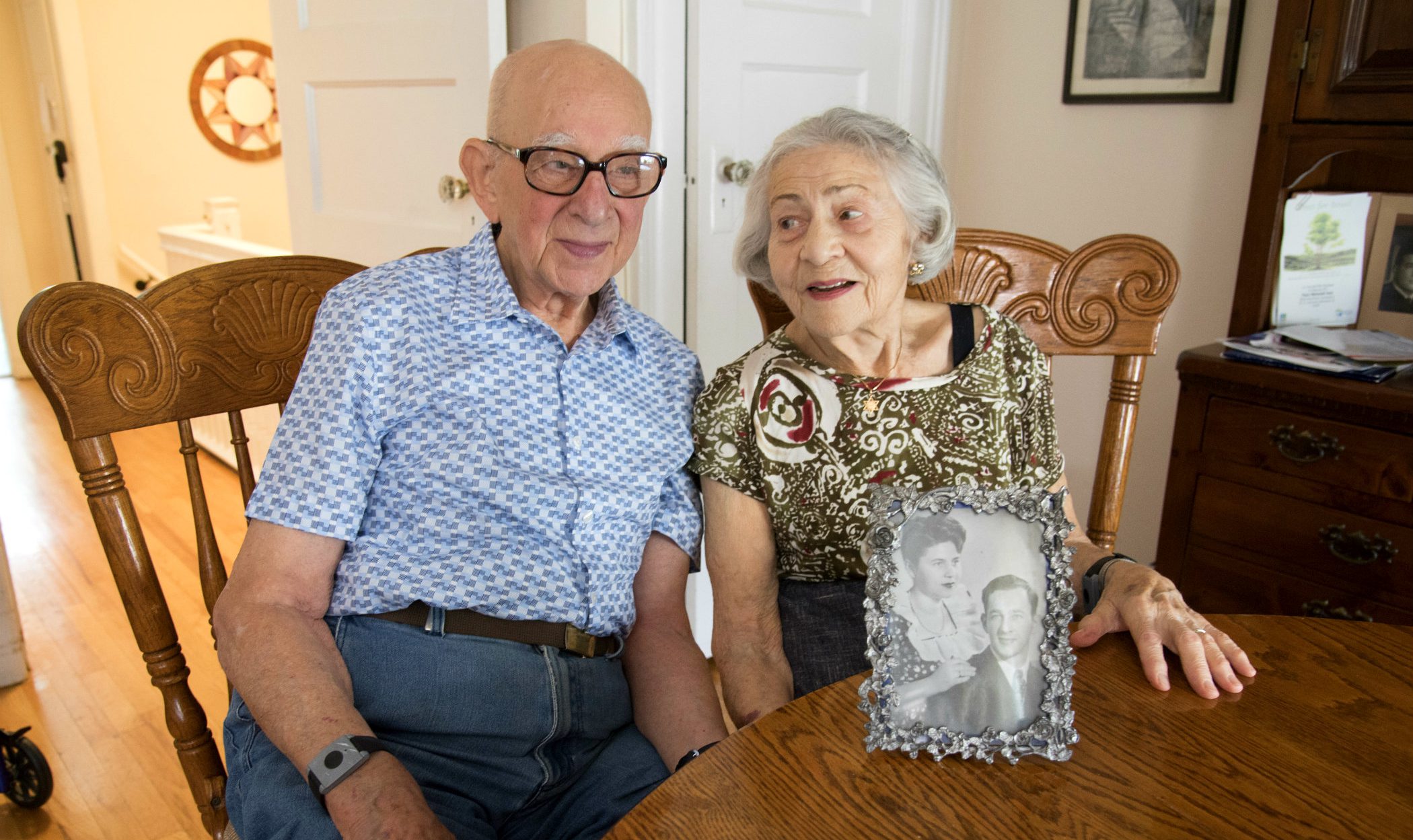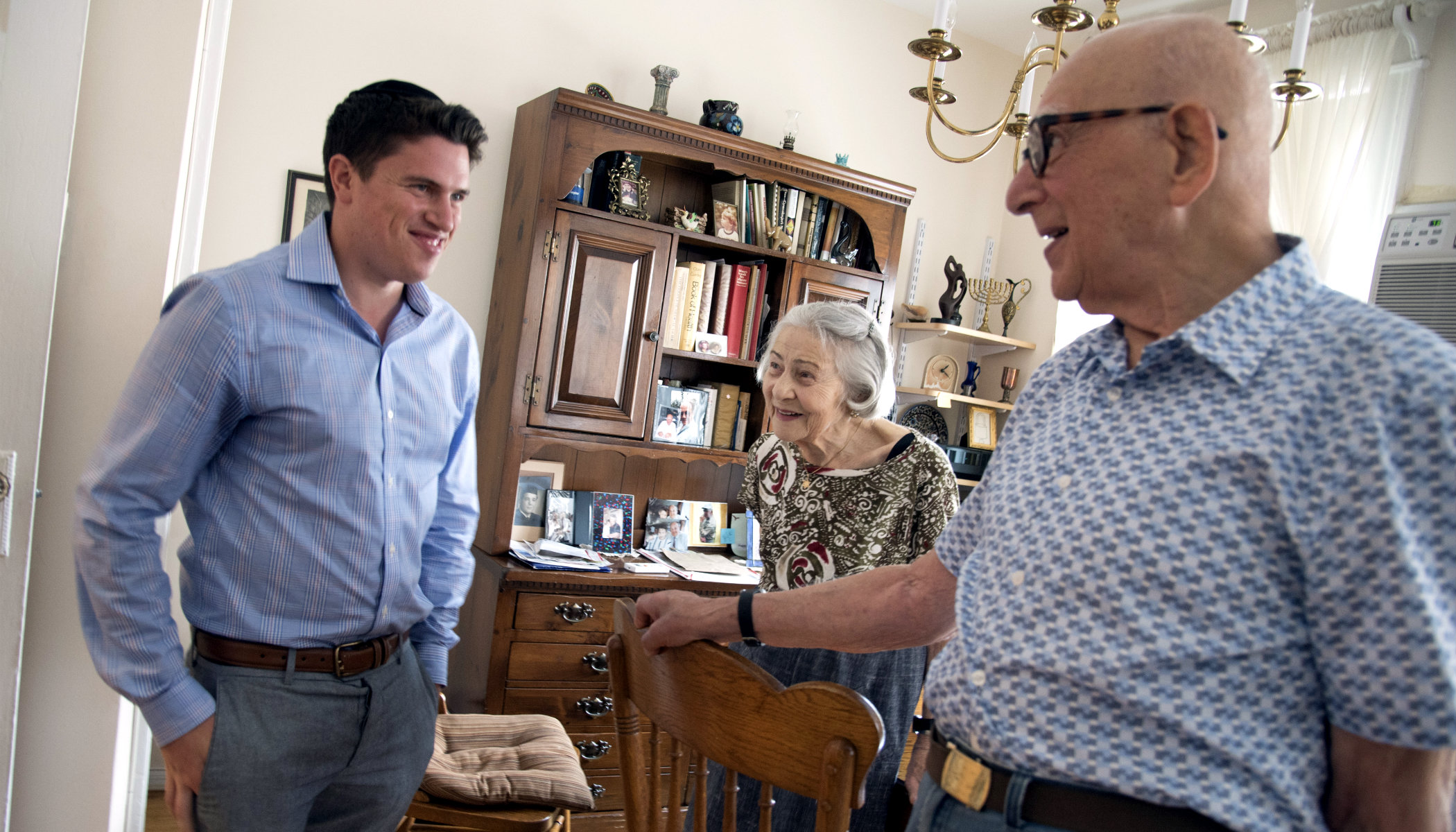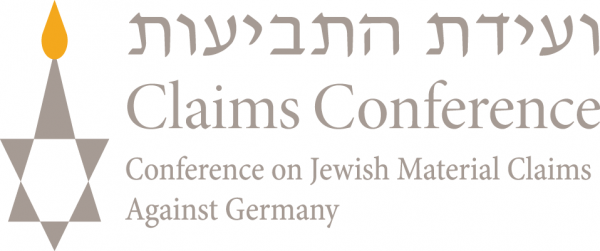Providing Vital Care for Holocaust Survivors in New York

Isaac and Rosa Blum survived the Holocaust in a Polish forced-labor camp, making bullets for the Nazis. Now both in their early 90s, they credit the homecare assistance they receive from a New York City social welfare agency, through funding from the Claims Conference, as the primary reason they are able to still live independently in their Brooklyn home.
Like the Blums, tens of thousands of elderly and frail Holocaust survivors in New York State receive vital aid from the Claims Conference through allocations of more than $49 million to 47 social welfare agencies and survivor-run organizations. These desperately needed funds enable these organizations to assist Jewish Holocaust victims with services such as homecare, case management, transportation, food and medication assistance, emergency cash assistance and socialization programs.
In New York City and parts of Long Island, Selfhelp Community Services, the Claims Conference’s largest grantee in New York, assists more than 4,500 Holocaust survivors, using $15.7 million in Claims Conference allocations for 2017. The impact of financial assistance from the Claims Conference is “immense,” said Hanan Simhon, Selfhelp Vice President for Nazi Victim Services. “It’s 80 percent of our funding, providing help so survivors can stay at home. Without it there would be no program.”
For Survivors in New York, Needs are Growing as They Age
And though Selfhelp also receives federal and local aid, the unmet needs of Holocaust survivors, most of whom are in their 80s and 90s, are growing.
About 52 percent of the 55,000 Holocaust survivors in New York City are at or below the federal poverty level, Hanan said. “It’s terrible to think these survivors are really suffering,” he said. “They can’t afford homecare on their own. Maybe they don’t qualify for Medicaid. They have food or rent or health issues. These issues are exacerbated as they age, and they have to make a choice” which issue to spend their money on, he explained.
Out of the total Holocaust victim population in the city, about 35 percent are immigrants from the countries of the former Soviet Union, Hanan said.
“Unlike survivors from Western Europe, who could rebuild their lives immediately after the war by coming to the United States or Israel, the suffering of the Russian population didn’t end in 1945,” Hanan said. “In the USSR, anti-Semitism ran rampant. And in the late 1980s to early 1990s, when they came to the U.S., these people were already elderly and couldn’t work. It was also very difficult for them to learn English as senior citizens. They don’t have Social Security or Medicare. They are often very poor. They receive food stamps, SSI, and are eligible for other benefits, but they still struggle.”
With Claims Conference support, the agency saw about 900 new survivors in 2016, Hanan said. And survivors have needs different than other seniors. “Their support system is non-existent, because their families were murdered,” he said. “They have no inheritance because it was stolen. They have no good memories. Their memories are of war and loss.”
More than 450 survivors receive homecare assistance from Selfhelp, with more than 65 percent of Claims Conference grant monies allocated to this vital service, Hanan said. These survivors receive a visit from their social worker four to six times a year. Some receive visits monthly; those in crisis can see a social worker three times a week.
“Thanks to the Claims Conference, we are able to visit more frequently,” Hanan said. “It’s very important to them to have a life review with the social worker. Most have some symptoms of PTSD. They’re able to talk about grief, and loss, and family issues.”
But Selfhelp does have a waiting list of more than 200. Their Brooklyn office has had “a deluge” of survivors seeking assistance. “Everyone is assessed immediately,” he said. Those on the waiting list “can participate in socialization programs, but they can’t have a social worker/case manager. We call them every month. Sometimes, a person who is waiting for a social worker for discussion of benefits could develop health issues and then would be addressed right away.”
Selfhelp tries to alleviate some survivor unmet needs with Claims Conference emergency assistance funds. “Their number one need is emergency assistance for items not covered by insurance, like dentures,” Hanan said. “We are looking for resources. The survivors coming now to our office are the poorest and neediest. They need more robust emergency assistance. And the pot of money is the same, or less.”
Along with Selfhelp, 38 other agencies are partnered with the Claims Conference to provide support to Holocaust survivors in New York City and Long Island; seven in Westchester and Rockland counties, and one in Buffalo.

Isaac and Rosa Blum
Isaac and Rosa Blum live in a tidy two-story house in the Brighton Beach section of Brooklyn. Isaac, who was born in Argentina to Polish émigré parents, was caught in pre-war Poland when his family went back for a visit. He and Rosa met as young adults in the ghetto of Czestochowa, Poland, and they’ve been together ever since. During one roundup of the ghetto, the Nazis selected Isaac to work; Rosa was in the line to go to Treblinka. Thinking quickly, Isaac said, in German, to a guard, “I want my sister,” pointing to her. The Nazi pushed Rosa to the other line; the rest of their families were sent to their deaths.
The couple spent the war doing forced labor at an ammunition factory which made bullets for the German army. “We were working 12 hours a day as slave workers,” Isaac said. “As long as we were working, we were alive.” The Blums know how lucky they were: “The place we were was a paradise compared to others. They didn’t gas us because they needed us,” Rosa says bluntly.
The couple was liberated in 1945 and went to Argentina, where Isaac’s older brother still lived, before immigrating to the U.S. in 1963. Their son passed away a few years ago but they frequently see their grandchildren; their daughter lives across the street and keeps an eye on her parents.
“We are quite independent,” Isaac says proudly. He often attends socialization programs at Selfhelp. But both Isaac and Rosa have neuropathy in their legs and are unsteady. They readily admit that without their homecare aide they would not be able to live at home. “She reminds me to use the walker,” said Rosa, who has already fallen five times at home. “And we are very appreciative for the help. Selfhelp is important because we can count on someone,” Rosa says.

